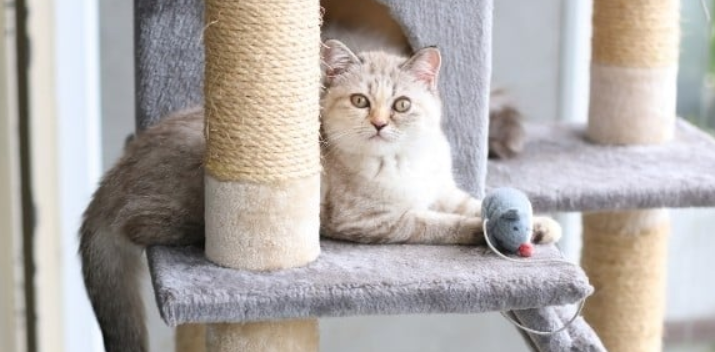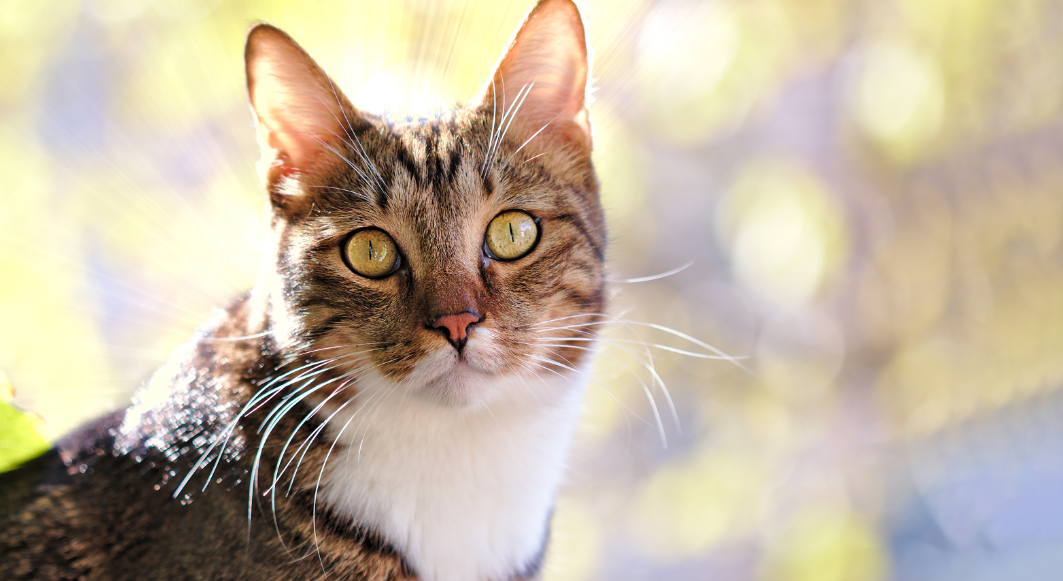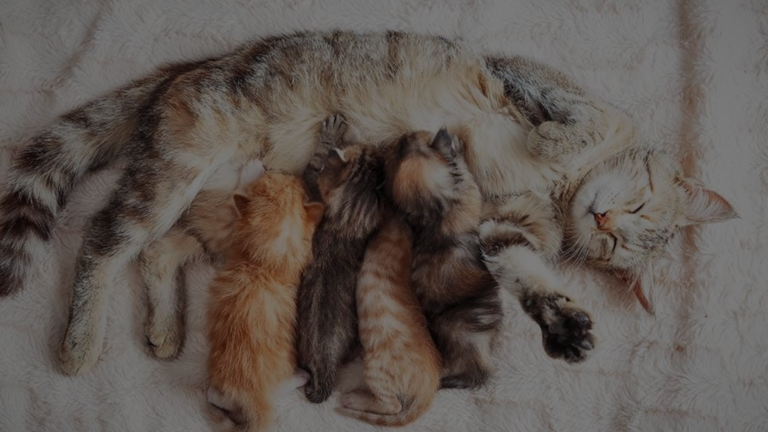Living with a furry feline friend can be an absolute joy, but sometimes their energetic antics or territorial behaviors can leave you wondering, “Does neutering calm a cat down?” While neutering offers a multitude of benefits for both your feline companion and yourself, its ability to calm a cat solely depends on the specific behavior you’re hoping to address. Let’s delve into the fascinating science behind feline behavior and explore how neutering impacts your cat’s personality.
Understanding Feline Behavior
Before addressing the calming effects of neutering, it’s crucial to understand what drives your cat’s behavior. Several factors play a role, including:
- Hormones: Sex hormones, particularly testosterone in males and estrogen in females, significantly influence cats’ behavior. These hormones trigger certain instincts, such as spraying, roaming, and aggression, associated with reproduction.
- Age: Kittens are naturally energetic and explorative, regardless of their sex. Their behavior typically calms down as they mature around 2-3 years old.
- Personality: Just like humans, cats have individual personalities. Some are naturally more laid-back, while others are high-energy bundles of fur.
- Environment: A stimulating environment enriched with toys, climbing structures, and scratching posts can provide healthy outlets for your cat’s energy, reducing unwanted behaviors.

Neutering’s Impact on Behavior
Neutering, the surgical removal of reproductive organs, primarily aims to prevent unwanted litter. However, it also influences various aspects of feline behavior, positively impacting both males and females in unique ways:
For Male Cats
- Reduced Territorial Aggression: Testosterone fuels competition and territoriality in male cats. Neutering significantly reduces spraying, fighting, and yowling, promoting a more peaceful coexistence with other cats and humans.
- Decreased Roaming: The urge to seek mates often leads unneutered males to roam, exposing them to dangers like accidents and fights. Neutering minimizes this urge, keeping your feline friend safer at home.
- Increased Affection: Some male cats become more cuddly and affectionate after neutering due to decreased hormonal fluctuations.
For Female Cats
- Eliminates Heat Cycles: Unspayed females experience regular heat cycles, characterized by restlessness, vocalization, and attempts to escape in search of mates. Neutering eliminates these cycles, creating a calmer and quieter household.
- Prevents Unwanted Pregnancy: Spaying prevents accidental pregnancies, contributing to responsible pet ownership and reducing the number of homeless cats.
- Reduces Risk of Feline Reproductive Cancers: Spaying significantly reduces the risk of mammary and ovarian cancers in female cats, offering a crucial health benefit.

Does Neutering Calm a Cat Down?
While neutering addresses hormonal influences on behavior, it’s not a magic bullet for guaranteed calmness. Other factors like personality, age, and environment play a significant role. Here’s a realistic viewpoint:
- It Calms Some, Lessens Urges for Others: In many cases, neutering effectively reduces undesirable behaviors associated with hormones like spraying, roaming, and aggression. However, it might not eliminate them, especially if these behaviors were established before neutering.
- Not an Instant Fix: Behavioral changes typically take time to manifest, sometimes weeks or even months after neutering. Patience and positive reinforcement are key during this transition.
- Address Underlying Issues: If your cat exhibits concerning behaviors not directly linked to hormones (e.g., anxiety, fear), neutering alone might not be enough. Consult a veterinarian or certified animal behaviorist to address the root cause.
Creating a Purrfectly Balanced Life for Your Cat
Remember, neutering is just one piece of the puzzle when it comes to fostering a calm and contented feline companion. Here are additional tips to enrich your cat’s life and promote positive behavior:
- Provide a Stimulating Environment: Offer plenty of toys, scratching posts, climbing structures, and hiding spots to keep your cat mentally and physically engaged.
- Schedule Regular Playtime: Dedicate daily playtime sessions to bond with your cat and channel their energy into positive activities.
- Maintain a Consistent Routine: Cats thrive on routine. Feeding them at set times and providing predictable playtime and cuddles helps them feel secure and relaxed.
- Address Stressors: Identify and minimize potential stressors in your cat’s environment, such as loud noises, new pets, or unfamiliar visitors.
- Seek Professional Help: If your cat exhibits persistent problem behaviors that disrupt your life, consulting a certified animal behaviorist can provide valuable guidance and personalized solutions.

Multifaceted Benefit for Cats and Owners
While neutering’s ability to directly calm your cat depends on various factors, the decision encompasses numerous benefits for both your feline friend and yourself:
Health Advantages for Cats
- Longer Lifespan: Studies suggest neutered cats tend to live longer, healthier lives due to reduced risks of cancers, injuries, and infectious diseases associated with roaming.
- Improved Overall Health: Neutering minimizes the risk of serious health conditions like feline urological syndrome (FLUTD) in males and pyometra (uterine infection) in females.
- Reduced Weight Gain: Neutering can regulate metabolism and potentially prevent unwanted weight gain in some cats.
Benefits for Owners
- Peace of Mind: Knowing your cat cannot contribute to the overpopulation crisis and is less likely to contract diseases or get injured while roaming offers significant peace of mind.
- Reduced Expenses: Unplanned litters require significant financial commitment for food, vet care, and potential adoption costs. Neutering prevents these expenses and contributes to responsible pet ownership.

Image Credit: Meowa.com - More Enjoyable Companionship: Addressing undesirable behaviors associated with hormones creates a calmer and more enjoyable household environment for everyone.
Conclusion
The decision to neuter your cat should be made thoughtfully, considering both individual needs and broader implications. Discussing these factors with your veterinarian can help you make the best choice for your feline companion and yourself.
Remember:
- Neutering is a safe and routine surgical procedure performed by qualified veterinarians.
- The age and overall health of your cat will determine the ideal timing for neutering.
- Discuss any concerns or questions you have with your veterinarian to ensure a smooth and successful procedure.
Resources & References
- https://www.ncbi.nlm.nih.gov/pmc/articles/PMC9328509/
- https://www.avma.org/resources-tools/pet-owners/petcare/spaying-and-neutering
- https://veterinary.rossu.edu/about/blog/why-spay-and-neuter-pets
- https://pubmed.ncbi.nlm.nih.gov/16095174/
- https://www.azpetvet.com/feline-fun-enrichment-activities-and-toys-for-cats/
FAQs About Neutering and Calming Your Cat
Will neutering calm my cat down?
Neutering addresses hormonal influences on behavior, but it’s not a guaranteed fix. It significantly reduces undesirable behaviors like spraying, roaming, and aggression in many cats, but the impact can vary depending on personality, age, and established behaviors. Patience and additional strategies might be needed.
At what age should I neuter my cat?
Veterinarians typically recommend neutering male cats between 4-6 months old and females before their first heat cycle (around 5-6 months old). Discuss optimal timing with your vet based on your cat’s breed, development, and overall health.
Is neutering a safe procedure?
Yes, neutering is a safe and routine surgery performed by qualified veterinarians. However, like any surgery, there are potential risks. Discuss any concerns you have with your vet to ensure a smooth and successful procedure.
Will my cat’s personality change after neutering?
Some personality changes might occur post-neutering, but they are usually positive. You might notice your cat becoming more affectionate, playful, or relaxed due to decreased hormonal fluctuations. However, their core personality will most likely remain the same.
What if my cat’s behavior doesn’t improve after neutering?
If unwanted behaviors persist, consult your veterinarian to rule out any underlying medical issues. Additionally, consider seeking guidance from a certified animal behaviorist who can address potential non-hormonal causes and develop personalized strategies for improvement.
Are there any alternatives to neutering for calming my cat?
Alternatives like medication or pheromone diffusers might be explored in specific cases, but neutering remains the most effective and responsible long-term solution for both individual and population health benefits. Discuss all options with your veterinarian to determine the best course of action for your cat.






![Does My Cat Love Me? [Quiz]](https://petsybox.com/wp-content/uploads/2023/10/Does-My-Cat-Love-Me-Featured-Images-768x432.webp)

